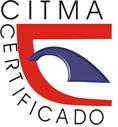Didactic strategies to favor communicative competencies in the learning of English in Ecuadorian infants
Keywords:
English language learning, Communicative Competencies, Teaching Strategies, Educational innovation, Early ChildhoodAbstract
The aim of this study is to make visible the good teaching practices in the learning of English as a foreign language with infants from 3 to 5 years old in a rural public school of Ecuadorian Innovation. The work is inscribed in the socio-critical paradigm and responds to a qualitative approach with the method of action research in three phases: prioritization of the problem, development of the action, observation, and reflection; with attention to the incorporation of the learning of English in the initial level of the Ecuadorian context. The findings show that the advantages of the dialogue of knowledge between specialists in English language teaching and early education teachers strengthen the development of communicative competencies of a second language from creative, playful, artistic, social, and cultural approaches. It is concluded that valuing cultural richness, active listening to children, free play, and the potentiation of learning environments are effective means to achieve the learning of English in infants.
Downloads
Downloads
Published
Issue
Section
License

This work is licensed under a Creative Commons Attribution-NonCommercial 4.0 International License.
















